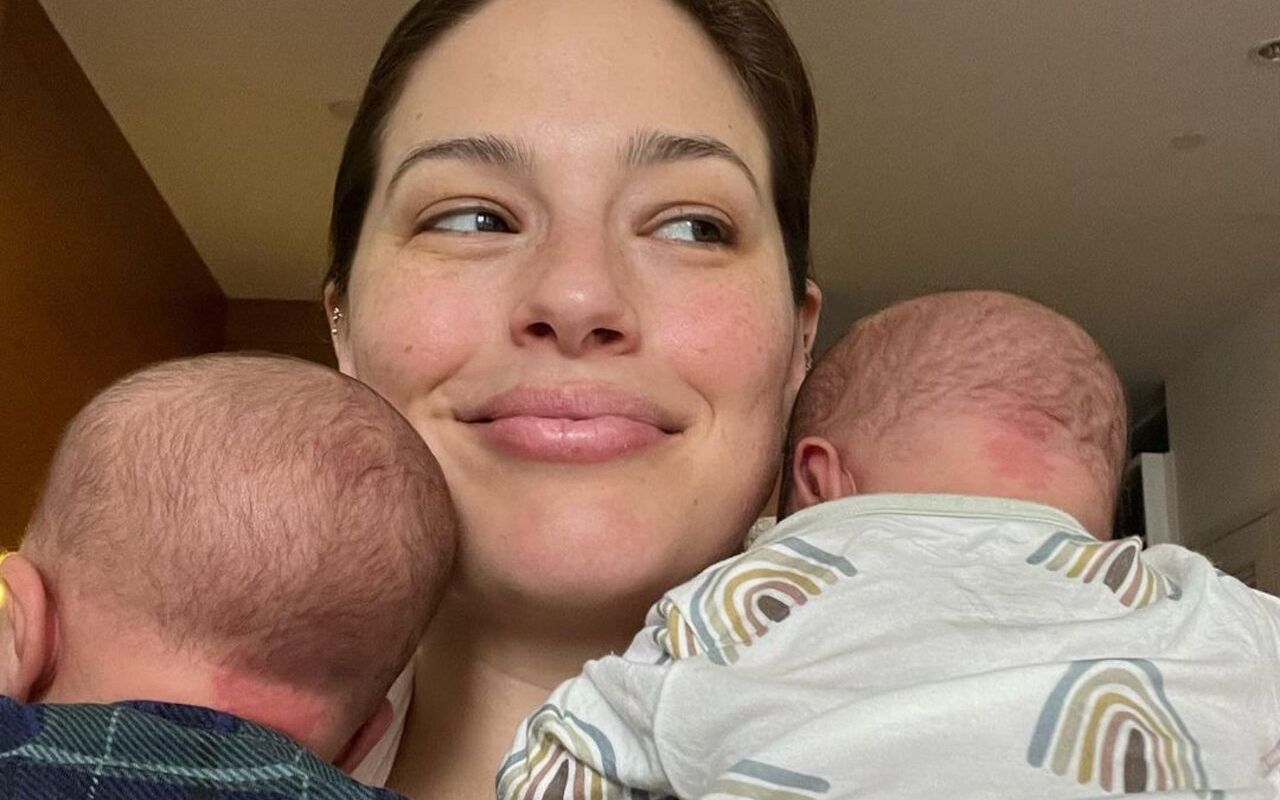People often find themselves wondering about the lives of others, especially when a particular question starts circulating. Did Ashley have her twins? This is a query that pops up quite a bit, sparking curiosity about someone's personal journey, and it's almost a natural thing for us to be interested in big life events, like welcoming new family members. We see questions like this appear in online searches, perhaps after a TV show, a social media post, or just a general chat among friends.
The desire to know more about a person's life, especially when it involves something as significant as having children, is very common. It reflects a human connection, a wish to share in moments of joy or simply to stay updated on someone's story. Yet, sometimes, the answers aren't as straightforward as they might seem, or the question itself might lead us down a different path entirely.
In this discussion, we'll try to address that very question about Ashley and her twins. We'll also, as a matter of fact, explore some deeper ideas about identity and how we perceive people, especially when personal details become topics of public interest. This will involve looking at how certain health conditions can shape someone's experience of themselves and how others see them, too.
Table of Contents
- Understanding the Public's Curiosity
- What We Know About "Ashley" and the Twin Question
- Exploring Dissociative Identity Disorder (DID)
- Identity, Perception, and the Self
- Why Accurate Information Matters
- Finding Support and Resources
- Frequently Asked Questions
Understanding the Public's Curiosity
It's really quite interesting how certain questions catch on, isn't it? A simple query, like "Did Ashley have her twins?", can spread across online spaces and become something many people are looking for answers about. This sort of public interest often comes from a place of genuine care or, you know, just plain curiosity about someone's personal story. We often feel a connection to people we see in the media or even just hear about through word of mouth.
The desire to know about life changes, such as pregnancies and births, is a pretty natural part of being human. We like to celebrate these moments, and sometimes, frankly, we just like to be in the know. This public curiosity can be a good thing, fostering a sense of community around a person or a topic. However, it also means that information needs to be handled with care, especially when it touches on someone's private world.
So, when a question like this pops up, people are usually hoping for a straightforward answer. They want to confirm a rumor, or perhaps just get an update on someone they feel they know, even if only from a distance. The way we search for and share this kind of personal news says a lot about our collective interests, in a way.
What We Know About "Ashley" and the Twin Question
When we look into the question, "Did Ashley have her twins?", it's important to consider that "Ashley" is a fairly common name, of course. Without more specific details about which Ashley people are asking about, it's hard to give a definitive answer that applies to everyone. There isn't, for instance, one widely known public figure named Ashley who has been at the center of a major, confirmed news story about having twins that directly connects to the information we'll talk about later.
Sometimes, questions like this can come from a misunderstanding, or maybe they relate to a fictional character in a book or a show, you know? It's possible the "Ashley" in question isn't a real person in the public eye whose twin birth has been broadly reported. Or, perhaps, the question itself might point to something deeper than just a simple birth announcement. It might hint at a more complex story involving identity or how someone experiences their own sense of self, which can be quite intricate.
Given the general nature of the query, and the lack of specific, widely publicized information about an "Ashley" having twins that connects to the context we're exploring, we can't confirm a specific event. Instead, this query gives us a chance to think about how we perceive people and their identities, and how sometimes, what seems like a simple question can open up a conversation about something far more involved, like certain mental health experiences.
Exploring Dissociative Identity Disorder (DID)
The idea of identity is a fascinating one, and it's something we all think about. For some people, however, their sense of self can be experienced in very distinct and separate ways. This brings us to Dissociative Identity Disorder, often called DID. It's a condition that, frankly, many people might not fully grasp, and sometimes it's talked about in ways that aren't quite accurate.
This disorder involves a person having more than one distinct identity or personality state. It's not just about mood swings, or anything like that. Instead, these different identities can actually take control of a person's actions and thoughts at various times. It's a rather rare condition, but it's very real for those who experience it.
Learning about DID can help us better appreciate the wide range of human experiences and, in a way, understand why questions about identity might sometimes be more layered than they first appear. It helps us approach discussions about people's lives with more thoughtfulness and less judgment, too.
What is DID, Anyway?
So, what exactly is Dissociative Identity Disorder? Well, it's a mental health condition where a person has two or more separate personalities. These distinct identities, or "alters" as they're sometimes called, actually take turns controlling the person's behavior at different times. It's not just a feeling; these are fully formed personality states.
This condition is, in fact, quite rare. It means that within one individual, there are two or more distinct identities present. These identities then alternately take charge of the person's actions and thoughts. It's a profound split in how someone experiences themselves and the world around them.
You might have heard of this condition by its older names, like multiple personality disorder or split personality. Those terms are, you know, still used in casual talk, but the official name now is Dissociative Identity Disorder. It involves the presence of these two or more distinct identities, which is a very key part of understanding it.
Signs and Symptoms to Look For
Knowing the main signs and symptoms of DID can help people recognize the condition, or at least understand what someone might be going through. One of the most common signs is the presence of these distinct identities. Each identity might have its own way of speaking, its own memories, and even its own mannerisms, which is quite remarkable.
People with DID often experience significant memory gaps, particularly for everyday events, personal information, or even traumatic past events. They might find themselves in a new place without knowing how they got there, or realize they've done things they don't remember doing. This can be very unsettling, obviously.
Other signs can include a sense of being detached from one's body or thoughts, a feeling often called depersonalization. There can also be derealization, where the world around them feels unreal or distorted. These experiences are pretty distressing and can make daily life quite a challenge.
Mood swings are also common, though it's important to remember that mood swings alone don't mean someone has DID. For those with DID, these shifts can be very sudden and dramatic, sometimes linked to different identities coming forward. There can also be anxiety, depression, or even thoughts of self-harm, which means getting help is really important.
People might also notice changes in their handwriting, their voice, or even their personal preferences, like what foods they enjoy or what clothes they like to wear. These shifts happen when different identities are in control. It's a way the condition shows itself in everyday life, you know.
Sometimes, people around the individual might notice these changes before the person themselves fully understands what's happening. It's a condition that can be confusing for everyone involved, and that's why accurate information and support are so vital.
The Impact on Daily Life
Living with Dissociative Identity Disorder can really affect someone's daily life in many ways. Imagine waking up and not remembering parts of your day, or finding things you've bought that you don't recall purchasing. This can make simple tasks, like holding down a job or managing a household, pretty tough.
Relationships can also be a big challenge. It's hard for family and friends to understand what's happening when different identities appear. Trust can be difficult to build and maintain, and communication can become very complicated. This is why patience and a willingness to learn are so important for those around someone with DID.
Schooling or work can suffer too. The memory gaps and shifts in identity can make it hard to focus, retain information, or consistently perform tasks. This can lead to difficulties in academic or professional settings, which is, you know, a very real struggle for many.
People with DID often have a history of trauma, especially severe, repeated trauma during childhood. The development of different identities is often seen as a way the mind copes with overwhelming experiences. So, the condition is deeply tied to a person's past, and that means healing often involves addressing those past hurts.
The emotional toll is also significant. There can be a lot of confusion, fear, and a sense of being out of control. Many



Detail Author:
- Name : Prof. Mireya Collier IV
- Username : altenwerth.juston
- Email : chaya.torp@gmail.com
- Birthdate : 1993-01-22
- Address : 20851 Geo Parkway North Gideonfurt, RI 69779-0093
- Phone : 1-601-446-5566
- Company : O'Keefe, Ankunding and Kemmer
- Job : Production Helper
- Bio : Autem accusantium nam perferendis non est ut nostrum. Ut quis nihil est ut. Aut tempora veritatis in eum alias nisi. Omnis excepturi voluptas dolor voluptas voluptatibus error.
Socials
linkedin:
- url : https://linkedin.com/in/turcotte2020
- username : turcotte2020
- bio : Alias a iusto neque explicabo minima et.
- followers : 2545
- following : 2545
facebook:
- url : https://facebook.com/barrett_turcotte
- username : barrett_turcotte
- bio : Ea id quo sint dolor. Nostrum excepturi a et libero.
- followers : 5049
- following : 747
twitter:
- url : https://twitter.com/barrett_official
- username : barrett_official
- bio : Laborum mollitia placeat accusantium deserunt in. Rerum ut et et veritatis quod ut animi. Amet enim et ut optio facilis rem.
- followers : 4256
- following : 2759
tiktok:
- url : https://tiktok.com/@barrett.turcotte
- username : barrett.turcotte
- bio : Accusamus voluptatem sed odio provident autem dicta rem.
- followers : 1366
- following : 2686
instagram:
- url : https://instagram.com/barrett8325
- username : barrett8325
- bio : Possimus porro ipsum consequatur ab quaerat omnis. Quis in dolores recusandae excepturi ut.
- followers : 5958
- following : 2883

